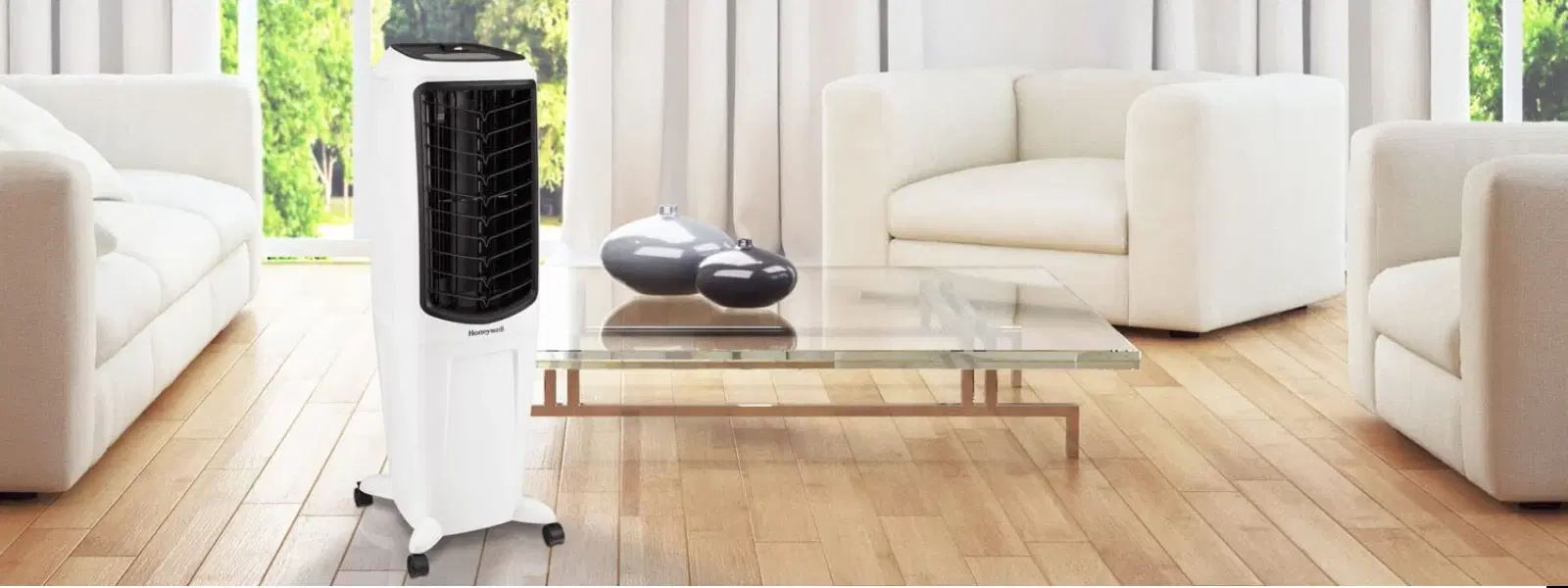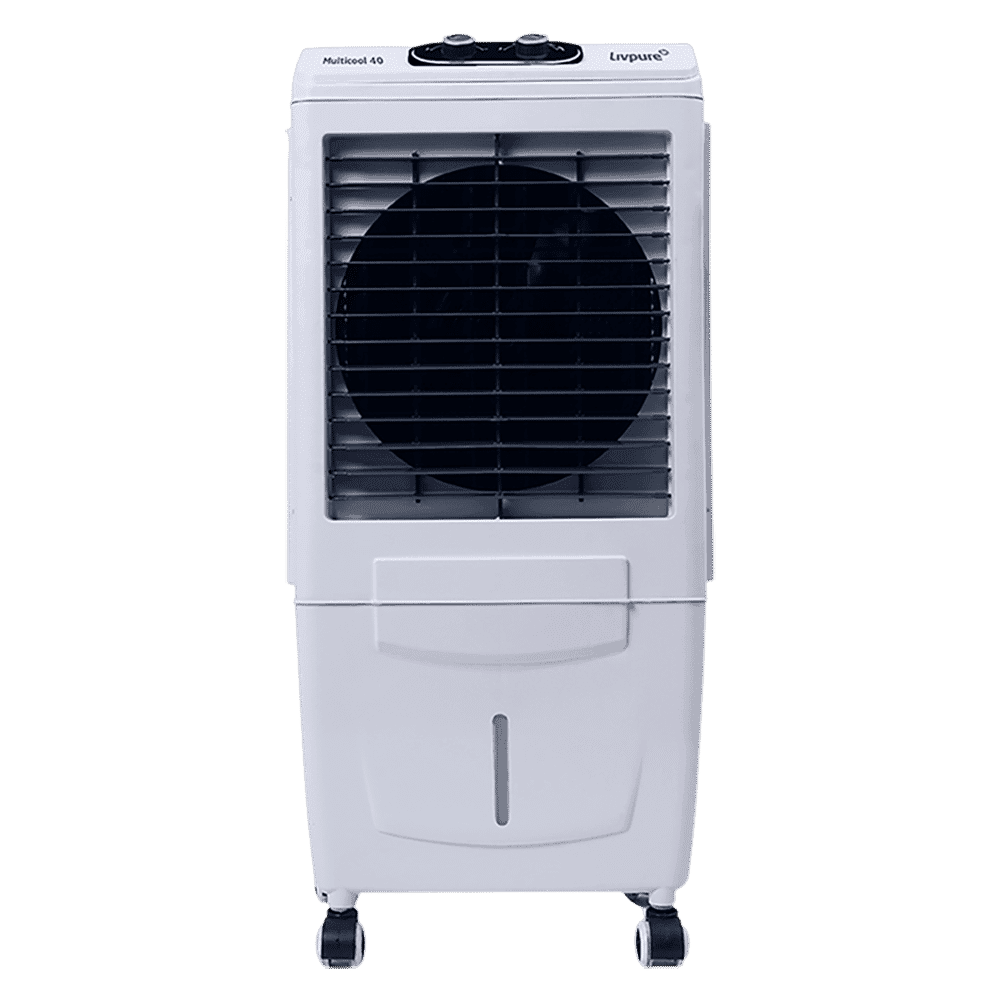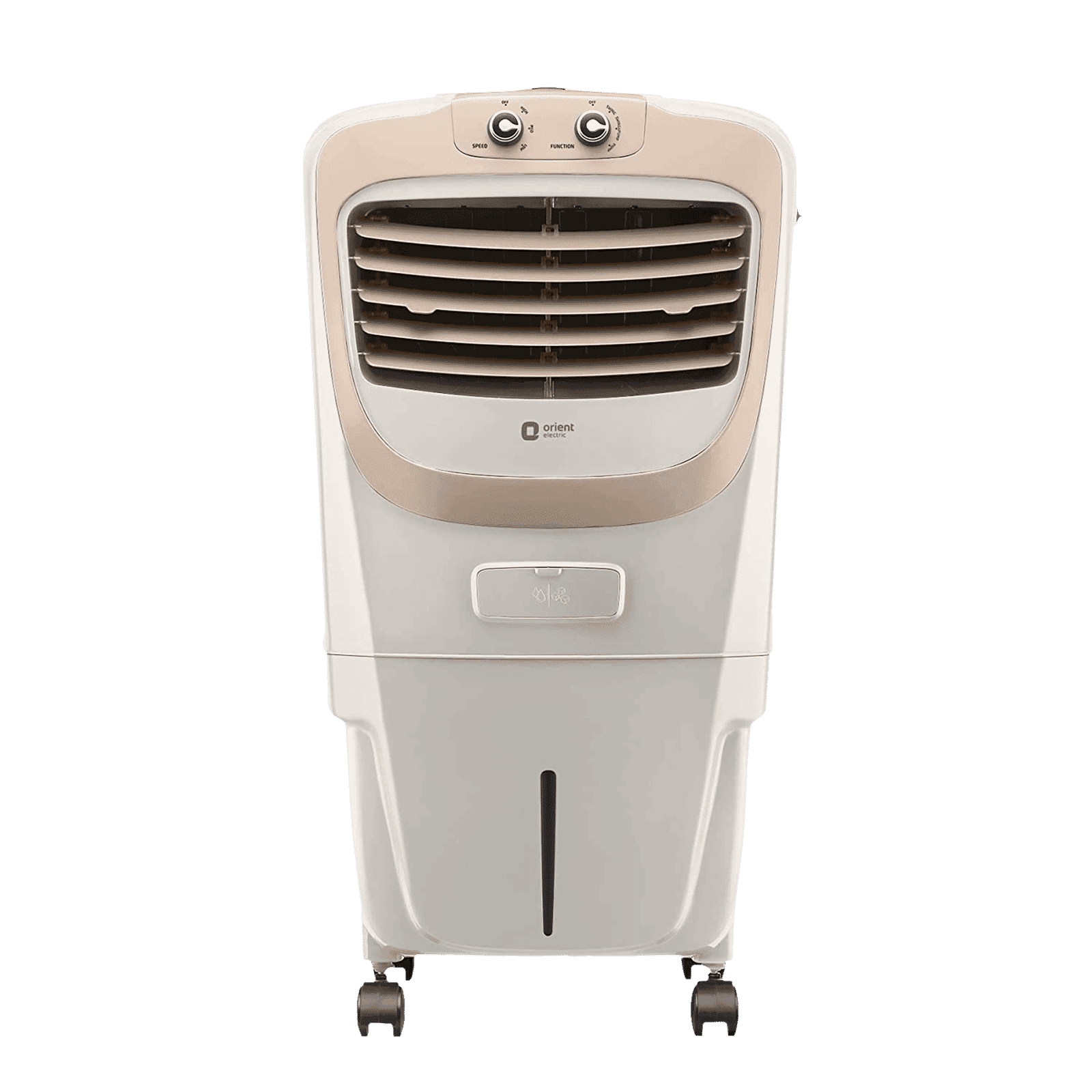
Home Appliances
•05 min read

Buy Livpure Multicool 40 Litres Desert Air Cooler with Evaporative Cooling Technology (Inverter Compatible, White & Blue) online at best prices from Croma. Check product details, reviews & more. Shop now!
When the summer heat becomes unbearable, finding the right cooling solution can make all the difference. With an increasing number of energy-efficient and affordable home cooling appliances available, many find themselves wondering if an air cooler box or an evaporative cooling system is best for their needs. This guide will deep dive into each option so you can make an informed decision that fits your lifestyle, room size, and budget.
An air cooler box is a portable air cooling appliance designed for small spaces. It works by using ice or cold water to cool the air within a box-like structure, resulting in a refreshing breeze. These units are prized for their compact design, making them perfect for use in cars, camping trips, or even in the smallest of rooms. Its portability and ease of use mark it as an ideal option for those seeking a quick, affordable respite from the heat.
In contrast, an evaporative cooler uses the simple principle of water evaporation to lower air temperature. This method is especially effective in dry climates, where the process can significantly reduce ambient temperature while remaining eco-friendly and energy efficient. Often larger and requiring a stationary setup, these coolers can be considered a smart choice for cooling bigger spaces or outdoor patios. For those looking forward to energy savings, this appliance stands out as a highly effective home cooling solution.
The primary difference between these two options is their method of cooling. An air cooler box relies on ice or chilled water to deliver cool air, which makes it excellent for short-term, portable applications. On the other hand, an evaporative cooler harnesses the power of water evaporation, ensuring a more continuous cooling flow that decreases overall temperature in larger spaces in a natural manner.
Portability is a critical consideration. The air cooler box shines with its compact design; it is easy to transport and set up wherever you need a cooling boost. Conversely, evaporative coolers typically require a dedicated space at home or in your outdoor area because of their larger size. This means if you are looking for a mobile solution, the premium is clearly on a more compact air cooling unit.
Both appliances champion energy efficiency, albeit through different mechanisms. Air cooler boxes provide an instant cooling effect by utilising lower power consumption techniques for brief periods, while evaporative coolers are designed to run longer with minimal energy usage. Particularly when considering home use, the latter stands out with even lower consumption making it an attractive option for those who are mindful of their energy bills.

Buy Usha Aerostyle 35 Litres Tower Air Cooler (Anti-Bacterial Tank, 4664135AST1E93N, White) online at best prices from Croma. Check product details, reviews & more. Shop now!
Cost considerations are another vital aspect. Generally, affordable air cooler solutions such as the air cooler box command lower upfront costs. However, they may require more frequent maintenance, such as ice refills and periodic cleaning to ensure longevity. Evaporative coolers, while slightly higher in initial investment, involve less frequent maintenance and offer greater long-term savings. For users keen on finding energy-efficient appliances for small spaces, these differences can guide the practical choice between mobility and sustained performance.
Did You Know?
Evaporative coolers can reduce indoor temperatures by up to 20°F in dry climates, all while using up to 75% less energy than traditional air conditioners. This makes them not only an environmentally responsible choice but also a cost-effective one over time.
The air cooler box offers clear benefits for those needing a quick, mobile solution. Its key advantages include portability, an affordable price point, and a compact design that fits perfectly in limited spaces. However, there are trade-offs: it has a limited cooling capacity and often requires frequent ice refills. This makes it less effective for larger rooms or when a long-lasting cooling effect is required.
In contrast, an evaporative cooler is engineered for extended use and broader application. Its energy-efficient and eco-friendly operation ensures effective cooling in spacious areas, making it an excellent home cooling appliance. Nevertheless, because it relies on a continuous water source, it may be less suited to humid environments or scenarios where portability is a priority. The stationary nature of these systems means they are best suited for fixed installations rather than on-the-go use.
Choosing the right cooling solution depends on several factors. First, consider the size of the space you wish to cool. If you are targeting a small area, an air cooler box, often described as a portable air cooler or a compact air cooling unit, may be ideal. For larger areas or open outdoor spaces in dry climates, an evaporative cooler offers superior performance. Next, think about your local climate. Dry areas take full advantage of the water evaporation process, while humid conditions might reduce its efficiency. Lastly, consider your budget. Affordable options like the air cooler box might seem attractive upfront, but also evaluate long-term energy savings when opting for an evaporative system.
For users frequently on the move or those needing an appliance in cars, during camping trips, or in small rooms, the air cooler box emerges as the clear winner. It also appeals to budget-conscious buyers looking for air cooler for small spaces and simplicity in usage. Conversely, for those investing in energy efficiency and long-term home installation, an evaporative cooler demonstrates clear benefits. Its effective performance in cooling larger spaces, such as living rooms and patios, positions it as the preferred choice in dry, climate-friendly regions.

Buy Orient Premia 45 Litres Personal Air Cooler with Dust Filter (Ice Chamber, Beige) online at best prices from Croma. Check product details, reviews & more. Shop now!
The cooling duration depends on the amount of ice used and the ambient temperature. On average, it can last anywhere from 4 to 8 hours.
Yes, an air cooler is effective in small spaces and can provide a refreshing and energy-efficient cooling option when used under the right conditions.
Cooler boxes are excellent for portable cooling needs, proving to be extremely useful in vehicles, during outdoor activities, or in small indoor settings.
The best device depends on your specific requirements. For compact spaces and portable use, an air cooler box is perfectly adequate, while for larger rooms, an evaporative cooler tends to be more effective.
An air cooler box uses ice or cold water for an immediate cooling effect. In contrast, an evaporative cooler leverages the natural process of water evaporation to cool the air, which is better suited for prolonged use in larger areas.
In summary, when battling the summer heat, both the air cooler box and the evaporative cooler come with their unique benefits. The air cooler box shines with its portability, affordability, and compact design, making it the ideal choice for on-the-go cooling in small spaces. On the other hand, evaporative coolers offer unmatched energy efficiency and are well-suited for larger areas in dry climates, ensuring a consistent cooling effect with minimal energy consumption. The ultimate choice comes down to your specific needs, whether it's quick, mobile cooling or efficient, long-term home cooling solutions. With an informed decision, you can enjoy a more comfortable living space while also reaping rewards like NeuCoins on Tata Neu every time you shop smartly.